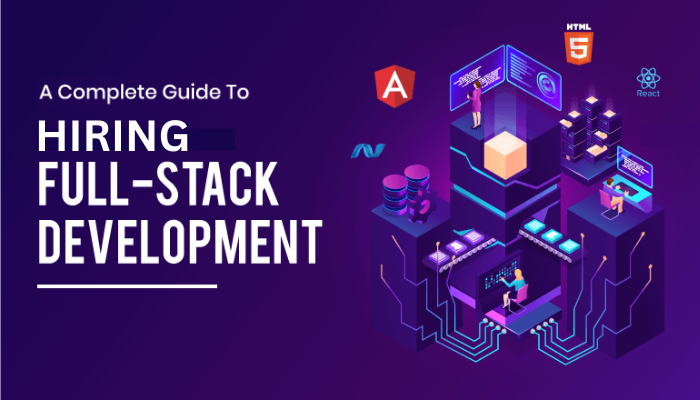Introduction
Are you considering hiring a full stack developer from India for your next project? You’re in the right place! In this comprehensive guide, we’ll walk you through the entire process, from understanding the advantages of hiring from India to tackling the nuances of cultural fit and managing time zone differences. Whether you’re a startup founder or a seasoned business owner, this guide will help you make an informed decision and ensure a successful collaboration with Indian talent.
Advantages of Hiring Full Stack Developers from India
When it comes to hiring full stack developers, India offers a plethora of advantages that can benefit your project and your bottom line:
- Cost Efficiency: Hiring a full stack developer from India can be cost-effective compared to hiring locally or from other countries. You can often get top-notch talent at a fraction of the cost.
- Skill and Expertise: Indian developers are known for their technical prowess. Determine the specific skills and technologies your project requires, and you’re likely to find developers in India who excel in those areas.
- Experience and Portfolio: Indian developers often come with impressive portfolios and years of experience in full stack development. They’ve worked on a wide range of projects and can bring valuable insights to your team.
- Cultural Fit: Indian developers are known for their adaptability and ability to work in diverse teams. They can seamlessly integrate into your company’s culture.
Communication and Collaboration
Effective communication is key to a successful partnership with Indian developers:
- English Proficiency: Most Indian developers are proficient in English, which is widely used as the primary language for communication in the tech industry.
- Communication Tools: Use tools like Slack, Zoom, or Microsoft Teams to facilitate real-time communication and collaboration, bridging the geographical gap.
Time Zone and Work Hours
Dealing with time zone differences can be manageable with the right approach:
- Impact of Time Zones: Understand how the time zone difference between the US and India can affect your project. Plan meetings and deadlines accordingly.
- Work Hours Alignment: Coordinate work hours that overlap to ensure smooth communication and problem-solving.
Project Management and Reporting
Efficient project management is essential for project success:
- Tools and Methodologies: Use project management tools like Trello or Asana to keep track of tasks and milestones. Agile methodologies are commonly used in software development.
- Progress Tracking: Regularly review project progress and establish reporting mechanisms to stay informed about developments.
Security and Legal Considerations
Protecting your project and data is crucial:
- Data Protection: Discuss data security and privacy measures with your Indian development team. Ensure they adhere to international standards.
- Legal Requirements: Familiarize yourself with legal requirements and contracts when hiring international developers. Consult legal experts if needed.
Quality Assurance and Testing
Ensure the quality of work delivered by Indian developers:
- Code Quality: Establish code review processes and quality assurance standards to maintain high-quality code.
- Testing Processes: Implement rigorous testing processes to identify and resolve issues before they impact your project.
Payment and Invoicing
Clarify payment terms and methods:
- Payment Terms: Define payment schedules and methods that work for both parties. Consider using platforms like PayPal or TransferWise for international payments.
References and Reviews
Check the developer’s track record:
- References: Request references from previous clients or employers to gain insights into their work ethic and skills.
- Online Reviews: Search for online reviews and ratings to gauge the developer’s reputation.
Long-term Commitment and Scaling
Plan for the long term:
- Availability: Determine if the developer is available for long-term projects or only for specific durations.
- Scaling: Discuss how the developer can adapt to changes in project scope and scale.
Crisis Management and Contingency Plans
Prepare for unexpected challenges:
- Unexpected Issues: Have contingency plans in place to address unexpected issues, such as developer unavailability or emergencies.
Intellectual Property Rights
Protect your project’s intellectual property:
- Ownership: Clearly define ownership of the project’s code and intellectual property in the contract.
Cultural and Religious Holidays
Be aware of cultural nuances:
- Impact on Timelines: Understand how cultural and religious holidays in India can affect project timelines and deadlines. Plan accordingly.
Internet and Technology Infrastructure
Ensure a reliable connection:
- Infrastructure Quality: Discuss the quality and reliability of the developer’s internet connection and technology infrastructure.
Termination Clauses
Prepare for contingencies:
- Contract Terms: Familiarize yourself with contract termination terms and conditions in case they become necessary.
Conclusion
Hiring a full stack developer from India can be a game-changer for your project, offering cost-efficiency, top-tier skills, and a strong work ethic. By addressing the key considerations outlined in this guide, you’ll set the stage for a successful collaboration that can drive your business to new heights. Embrace the advantages of a global talent pool and take your project to the next level with Indian full stack developers.













































